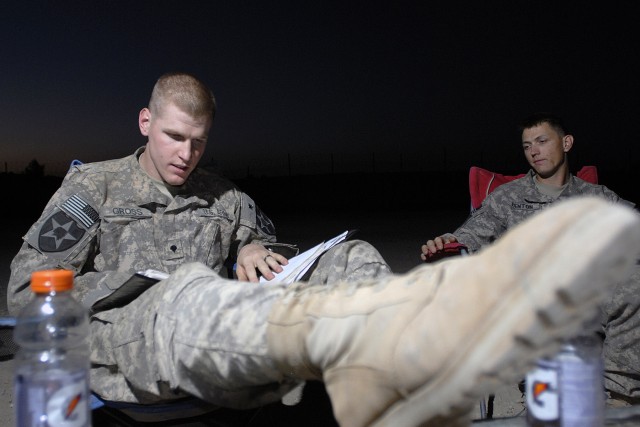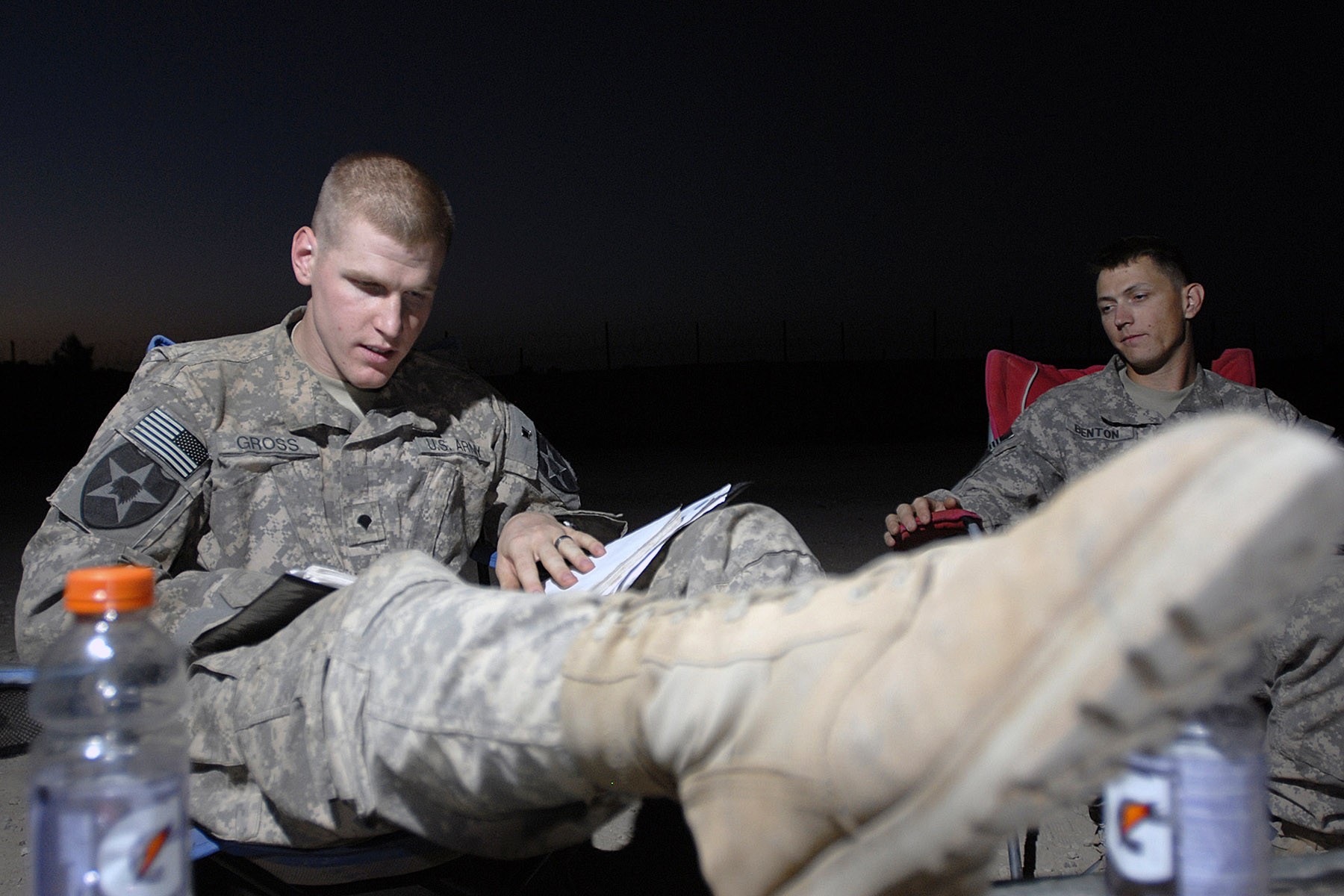
FORWARD OPERATING BASE CONSTITUTION, Iraq (Army News Service, Aug. 12, 2010) -- "It's hard to fight complacency when you're just waiting around," admitted Sgt. 1st Class Elias Munoz as he and two of his Soldiers attempted to hook up cable for television in a room set aside for U.S. Soldiers here.
Every few weeks, 1st Platoon, Company F, 52nd Infantry Regiment, serves as a quick reaction force, waiting on the small Iraqi Army base to assist at a moment's notice with sensitive site exploitation.
When something outside the wire goes "BOOM", or if a damaged U.S. vehicle needs to be recovered, Soldiers from Company F escort explosive ordinance disposal and other forensic specialists out to the site to gather valuable data used in future prosecution of terrorists.
However, due to continuing trends of decreased violence in the area, Munoz and his Soldiers find themselves spending more and more time inside the wire, and must keep themselves busy through training, studying and overall Soldier development in the hours they would normally spend out in sector.
"What happens out there dictates how often we go out," explained Munoz, the platoon sergeant. "There are some days where we won't go out at all."
After providing QRF on and off since the end of April, many of the men have solidified a certain schedule to pass the hours spent away from their home unit back on Camp Liberty.
Sgt. Steven Benton, a team leader, said the roughly half day spent on the Iraqi Army compound isn't what one would expect.
"It might, on paper, look like more time, but I don't see it," he said.
During daylight hours, team leaders conduct training including refresher courses on land navigation and reacting to enemy contact, along with driver's training and how to use communications systems.
"To just sit here is a waste of everybody's time," said Benton, a New Smyrna Beach, Fla., native. "What's two hours out of a day' Nothing."
Benton said he considers any time that allows for training a benefit, especially for the younger, less experienced Soldiers who aren't as able to gain the same skills outside the wire as Soldiers on previous combat deployments because of reduced hostility.
Once the sun sets, some of the men drift away from their Stryker vehicles and head over to the nearby gym, as others nap on one of a dozen cots set up in a room nearby. Some Soldiers set up in a small computer room with Internet and phone access, or just pull out lawn chairs and bond out in front of the Strykers.
"I try to study for at least an hour out here," said Benton, who is competing for the title of "NCO of the month" for 2nd Battalion, 12th Field Artillery Regiment, the unit his company is attached to.
Everyone gathers behind the platoon's line of Strykers for a brief moment to collect his midnight chow, which is retrieved by volunteers from the group who drive to dining facilities on Victory Base Complex.
While every man in the unit is ready to respond at a moment's notice, should something happen outside the wire, they rest on their lawn chairs, cots and weight benches knowing it probably won't happen. And they're okay with that.
(Pfc. Kimberly Hackbarth writes for 4th SBCT PAO, 2nd Inf. Div.)

Social Sharing